Afficher les éléments par tag : European Union
Religion and Secularism in the European Union
In this new and unprecedented report on religion and secularism in the European Union, the Observatory of Religions and Secularism (ORELA) examines major concerns for the EU, such as secularization, the way EU institutions and European countries cope with diversity and pluralism, State and religion cooperation, religion at school, ethical issues and societal debates, freedom of religion, religion-based campaigns… Since 2013, ORELA has published annual reports on religion and secularism in Belgium. It offers online analyses concerning religions and beliefs and Church-State relations, written by experts from the CIERL and various European universities or research institutes, as well as a daily press review on religion and beliefs, covering Europe and beyond. Thanks to a network of experts in the 28 EU member States, ORELA also provides a summary of every national situation, and now a comprehensive and transnational report on religion in the EU.
Religion and Secularism in the European Union
The Observatory of Religions and Secularism (ORELA), hosted by the Université libre de Bruxelles, is proud to launch its first report on religion and secularism in the European Union. In this new and unprecedented report, ORELA examines major concerns for the EU, such as secularization, the way EU institutions and European countries cope with diversity and pluralism, State and religion cooperation, religion at school, ethical issues and societal debates, freedom of religion, religion-based campaigns…
Religion and Secularism in the European Union

ORELA is proud to announce the release of its brand new publication: "Religion and Secularism in the European Union. State of Affairs and Current Debates", edited by Jan Nelis, Caroline Sägesser and Jean-Philippe Schreiber (Collection "Citizenship Dynamics in Europe", headed by Dominique Avon, P.I.E. Peter Lang Publishing House; Bruxelles, Bern, Berlin, Frankfurt am Main, New York, Oxford, Wien, 2017, 224 p.). This volume monitors new developments concerning religious issues, faith-based organizations, State-Church relations and secularism in the EU, which especially during the past two decades have undergone profound changes, changes which continuously and increasingly alter mentalities and habits, whether belief-related or not. In this collective work, thirty authors develop the major themes that are relevant to their country of expertise, while a final chapter is devoted to the role of the European Courts (ECHR and EU). The different chapters show that in recent years, religion, once thought to be of minor importance in a highly secular society, has made quite a vigorous political comeback. Thus Europe seems to have reached a crucial point in its history, a moment in which future tendencies in the field of religion and secularism are being defined, and negotiated. There is little doubt that the outcome of this process will influence the continent’s future outlook, as well as its role and relevance in an increasingly globalized world.
Read more here...
Religion and beliefs: fundamental rights guaranteed by the ECHR and EU law
Freedom of religion, equality and non-discrimination based on religion or belief are fundamental rights firmly enshrined in the European Convention for the Protection of Human Rights and Fundamental Freedoms adopted by the Council of Europe in 1950. The European Court of Human Rights in Strasbourg has progressively built a strong case-law in defence of those principles. The European Union has drawn heavily on the Council of Europe in its endeavour to promote fundamental rights, which it has done most notably in adopting binding anti-discrimination directives; control over the respect of such directives by legislation enacted by national states can be exerted by the Court of Strasbourg, given the relative passivity of the Court of Justice of the European Union so far. Gabriele Caceres (ULB) has summed up these major issues in a brand new ORELA report entitled: "Religion and beliefs: fundamental rights guaranteed by the ECHR and EU law".
Religion and beliefs: fundamental rights guaranteed by the ECHR and EU law
Freedom of religion, equality and non-discrimination based on religion or belief are fundamental rights firmly enshrined in the European Convention for the Protection of Human Rights and Fundamental Freedoms adopted by the Council of Europe in 1950. The European Court of Human Rights in Strasbourg has progressively built a strong case-law in defence of those principles. The European Union has drawn heavily on the Council of Europe in its endeavour to promote fundamental rights, which it has done most notably in adopting binding anti-discrimination directives; control over the respect of such directives by legislation enacted by national states can be exerted by the Court of Strasbourg, given the relative passivity of the Court of Justice of the European Union so far.
Informations supplémentaires
- Auteur Gabrielle Caceres
Religion and secularism in Poland
In Poland, religious freedom is guaranteed by the 1997 Constitution and by international instruments incorporated into Polish law. The country is also party to most European and universal human rights documents. In 2003, the number of Catholics was estimated at 34,443,998 (90.1 % of the entire population), the number of Orthodox Christians at 510,712 (1.34 %) and the number of Protestants at 162,102 (0.42 %). Surveys of the Centre of Public Opinion Research (CBOS) and the Catholic Church Institute of Statistics have shown that 90 % of the Polish population consider themselves a religious person, whereas the latest CBOS survey (2015) reveals that 50 % of the population participates in mass at least once a week (58 % in 2005). The same survey indicates that the proportion of people who do not attend Church services has increased from 9 % in 2005 to 13 % in 2015. Daily prayer is also in steep decline: from 66 % in 2005 to 43 % in 2015.
Informations supplémentaires
Poland
In Poland, religious freedom is guaranteed by the 1997 Constitution and by international instruments incorporated into Polish law. The country is also party to most European and universal human rights documents. In 2003, the number of Catholics was estimated at 34,443,998 (90.1 % of the entire population), the number of Orthodox Christians at 510,712 (1.34 %) and the number of Protestants at 162,102 (0.42 %). Surveys of the Centre of Public Opinion Research (CBOS) and the Catholic Church Institute of Statistics have shown that 90 % of the Polish population consider themselves a religious person, whereas the latest CBOS survey (2015) reveals that 50 % of the population participates in mass at least once a week (58 % in 2005). The same survey indicates that the proportion of people who do not attend Church services has increased from 9 % in 2005 to 13 % in 2015. Daily prayer is also in steep decline: from 66 % in 2005 to 43 % in 2015.
Religions and Secularism in Portugal: mainly a lingering monotheism
Though the quantity of studies on religious/non-religious tendencies in today's Portugal is not overly abundant outside the Catholic remit, available are official and other reliable statistical data, and a number of well-structured analyses thereof, providing insights into the religious phenomenon in this country. Notwithstanding, the main issue is whether the more recent, few-decades-spanning information is by itself sufficient for supporting medium to long-term tendencies anticipation in this domain. This text takes the view that the Portuguese national historical context may to a good extent explain the degree of observed trend stability as regards religions-secularism in the country. The Portuguese law of religious freedom dates just from 2001. Signs are that only now an effective multiplication of creeds is underway, whose future impact cannot yet be soundly discerned.
Informations supplémentaires
- Auteur H. Machado Jorge
Mapping religion at the European Parliament: some findings
The interactions between religion and politics in the European integration process are the focus of increasing attention in political and academic debates. However, the body of research that has been developing for several years relates mainly to the representation of religious interests at the European Commission. The influence of religious actors and networks within the European Parliament give rise to many suppositions, ambitions or fears, but there are few empirical data available. To fill the gap has been the purpose of the international research project RelEP (Religion at the European Parliament) associating researchers from nine universities in Europe and beyond — findings of the RelEP project are presented in Religion and politics in the European Union, The Secular Canopy, Cambridge, 2014. Studying the normative preferences of European legislators reveals the conditions in which religion exerts an influence.
Informations supplémentaires
- Auteur François Foret
Anti-Choice Religious Groups and European Institutions: A Reframing of Language
Numerous radical religious groups are active at the European level where they attempt to influence political leaders on issues such as Sexual and Reproductive Health and Rights. Those who refuse their hard-line agendas refer to these organisations, which usually call themselves “pro-life”, as “anti-choice”. There has been a recent change in the way these “anti-choice” organisations express their views on ethical topics: a previous focus on emotions has given way to an increasingly ‘rational’ message. The new conservatives have appropriated values related to democracy and human rights to find a new means of building a sense of legitimacy for their discourse.
Informations supplémentaires
- Auteur Emilie Brébant







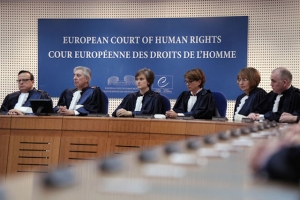
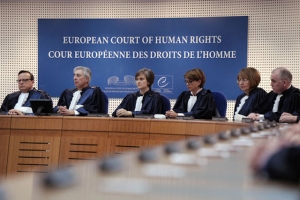
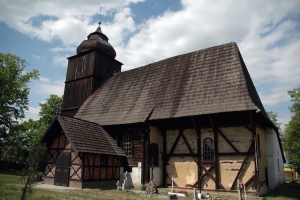
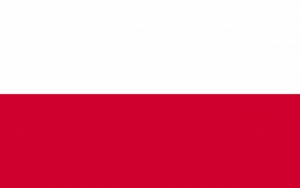
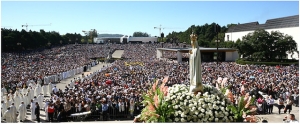

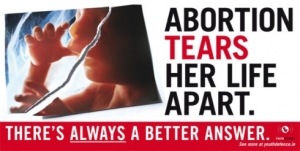
 MangoGem
MangoGem